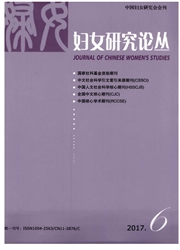

 中文摘要:
中文摘要:
边疆既是一个地理实体,更是一个文化概念,是一个以"归化"程度为基准在空间上不断向外推进的活动带。对于美国来华新教女传教士研究而言,中国边疆既是实现自我价值的机遇,也是对故土"纯正女性风范"的挑战。她们的边疆意识是由女性身份与宗教、国家、种族这三个外在强势身份共谋与反抗的结果。对其边疆意识的结构性分析有助于了解美国妇女运动和国家发展之间的复杂协商关系。
 英文摘要:
英文摘要:
Frontier is a cultural concept more than a geographical entity; more accurately, it could be a space of movement that expands outward based on "domestication". Research on Protestant missionary women who came to China shows that Chinese frontiers meant for these missionary women both a challenge to their "True Womanhood" of their homeland and an opportunity of self-realization. Their consciousness of frontiers resulted from the harmony and tensions between their female identity and their other three powerful i- dentifies in one, namely, their Christian identity, their American national identity and their white racial identity. A structural analysis of their frontier consciousness can help understand the complex relationship between American women's movement and nation state building of the United States.
 同期刊论文项目
同期刊论文项目
 同项目期刊论文
同项目期刊论文
 期刊信息
期刊信息
